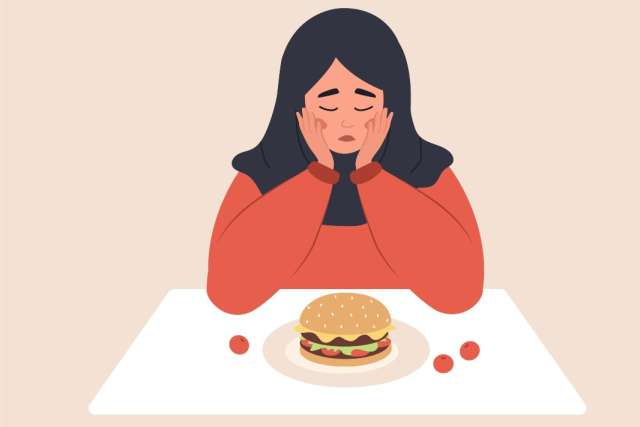Eating disorders are behavioral issues that can lead to serious physical consequences, including harming a person’s gastrointestinal health.
To help patients with both disordered eating behaviors and GI illnesses, Janelle Smith, RD, MS, a registered dietitian at the UCLA GI Nutrition Program, is working to establish a multidisciplinary team with the hopes of eventually building a specialized program to address these issues.
“We need to develop reliable ways to treat patients with overlapping disordered eating and GI illnesses,” Smith said. “Disordered eating and GI dysfunction are often treated as distinct and separate conditions; we want to determine how we can identify patients in our GI clinics with disordered eating to more effectively treat them.”
This makes UCLA Health one of the few health care centers in the country with the specialized expertise to simultaneously address overlapping eating and GI disorders.
“There are standards of care for treating eating disorders and there are standards of care for treating disorders of gut-brain interaction,” Smith said. “However, there aren’t many places treating them together.”
Psychology behind disordered eating and disorders of gut-brain interaction
Doctors and researchers are still working to unlock the many mysteries of the gut-brain relationship, but they have confirmed that the cognitive and emotional centers of the brain can impact intestinal functions.
Eating disorders can involve a variety of behaviors, Smith explained.
“For some people, it may be restrictive eating — and that is not always based on a desire to be thinner or not gain weight. Many patients in our GI clinic struggle to eat due to fear of worsening GI symptoms or confusion around popular gut-health advice. Others may struggle with compulsive overeating or binge eating,” she said. “These behaviors may be accompanied by compensatory behaviors, such as over-exercising, vomiting and laxative misuse.”
Whether it is overeating or undereating, if an eating disorder persists, it can lead to a variety of GI symptoms, including diarrhea, constipation, abdominal pain and liver failure, among others.
Treating GI illness and behavioral health hand-in-hand
Smith and her colleagues in the digestive diseases nutrition program work closely with GI doctors and GI psychologists to make sure each patient gets individualized care specific to their diagnosis.
“The GI doctor is there to determine the underlying cause of the patient’s GI symptoms and if they are caused by disordered eating behavior,” Smith said. “Our specialized gut-focused behavioral health specialists are involved to focus on the intersection of GI conditions and disordered eating. Their role,” Smith said, “is to help the patient work through the complex behaviors that lead to disordered eating and GI dysfunction.”




